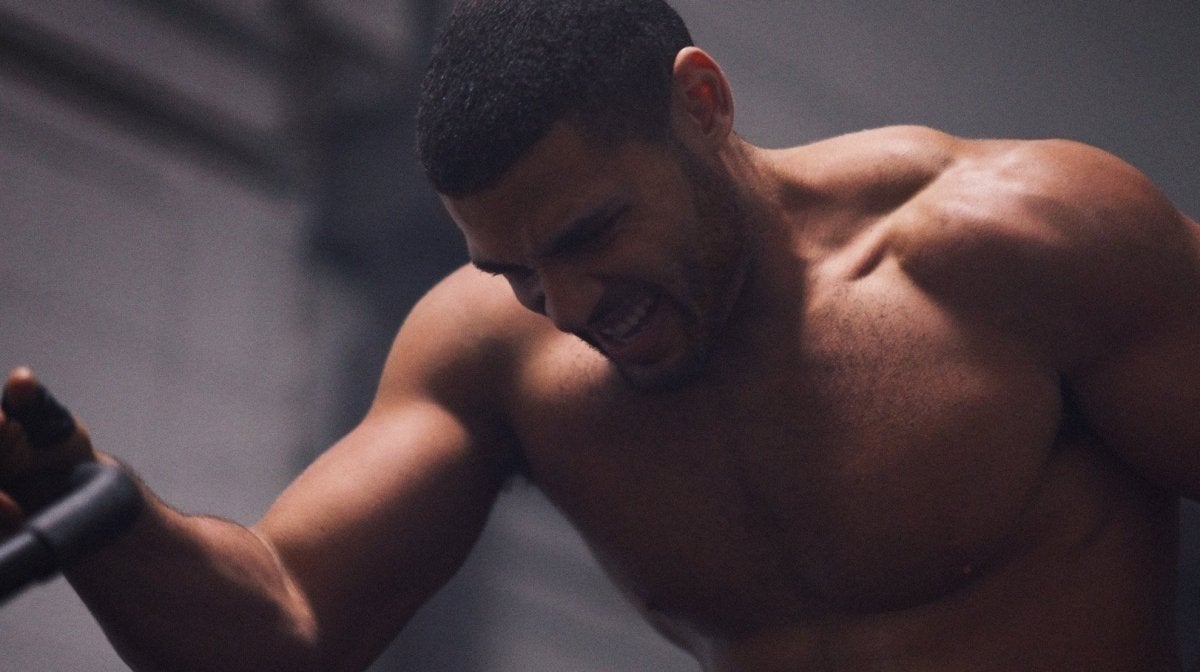How To Use Ramadan To Kick Start Your Weight Loss Journey

Ramadan refers to the holy month where many Muslims around the world fast daily for over 12 hours per day, from sunrise to sunset. Iftar is the first meal eaten to break the fast after sunset, whilst Suhoor is the first meal eaten before starting the fast, before sunrise. Surprisingly, despite long periods without food and water, often during this 30 day period, more than 50% of people tend to gain weight in the form of fat in addition to losing muscle mass. Why is this the case?

Since your schedule during Ramadan will be a little bit all over the place, it is even more important to plan smart and ahead of time when it come to your food and your training. Think about whether you operate well training in a fasted (unfed state) and whether you will fit in your workout before Iftar or after you first break your fast with a small, nutritious meal that won’t leave you feeling sluggish at the gym. If you prefer to workout in the morning, make sure you plan a low to moderate intensity workout so you can comfortably get through the day without water or food until sunset.
When it comes to eating, you will most likely be very low on energy by the time the work hour finishes, so try to have prepared healthy snacks and meals in advance, ready for when you get home come sunset time. This will prevent you from bingeing on fatty, high carb, high sugar foods that are easily within reach and temptation when you’re in a food-deprived and mentally-tired state. Make decision-making easy by planning ahead! Fail to plan, plan to fail!
Since Iftar is often a meal and celebration shared with family and friends, be careful not to overeat at this meal. Hunger, thirst and being surrounded by lots of people around food can be dangerous, as you can easily find yourself mindlessly eating and reaching for second and third helpings of food as the evening goes by. Studies have shown that when eating in large groups within shared social food settings, overconsumption of food and excess calories increases, causing weight gain. So be mindful when eating around others, especially since there will often be an abundance and vast variety of delicious foods on the table, especially when entertaining guests.
Since you will most likely be very hungry by the time Iftar comes, it is easy to reach for hyper-palatable foods that have a high sugar and fat content, particularly desserts and cakes, as well as deep-fried, fatty foods. If eating out at a restaurant, try to opt for healthier options such as grilled or steamed meats instead of fried and try to swap processed high sugar sweets and treats and Arabic desserts with naturally occurring sugar such as fresh fruit. Fresh fruit is preferred to dried fruits and fruit juices, which contain less fibre and higher sugar content.
Many people use Ramadan as an excuse to delay starting an exercise program or to stop any current training that they are doing. This is a large contributor to weight gain and can also significantly impact any strength and muscle development that has taken years to achieve! Lack of proper nutrition, including not getting enough micronutrients and overindulging in calorie-dense, non-nutritious foods, combined with lack of exercise is a recipe for disaster, often resulting in deterioration of muscle tissue and reduced cardiovascular fitness and strength. Remember, in order to lose weight, a large factor is calories in vs. calories out – so consistent physical activity is important to avoid putting on fat. If you’re eating the same total amount of calories during Ramadan as when you are not fasting, within a compressed time frame, coupled with reduced energy expenditure, then the kilos are sure to pile on! Don’t quit, stay fit!
Many people skip Suhoor during Ramadan because it can interrupt your sleeping patterns to wake up in the early hours of the morning to eat before sunrise. It’s not that skipping this meal will always lead to weight gain, but it can be a culprit due to a longer period fasting and extreme hunger before Iftar, causing over-eating of less than ideal food types. If you are one to wake up for your Suhoor meal, I would recommend lots of hydration with a few glasses of water, a meal that is high in protein, complex carbs, healthy fats and low GI to keep your blood sugar and energy levels stable throughout the fasting day.
If you want to minimise disruption to your sleep, try keeping a healthy snack by your bedside table that is easy to consume and digest, such as healthy nut butter with some fruit like a banana or apple and a quality protein bar for extra satiety. Myprotein has some great products to help keep you prepared and organised for Ramadan, like their 100% natural nut-butters and delicious and satisfying protein bars. I recommend the Myprotein Meal Replacement Bar which has less than 230 calories, has 20g protein and 22 different essential nutrients like calcium, potassium and phosphorous!
To avoid becoming part of the 50% who gain weight during this month, let’s use Ramadan as a great time to kick start your fitness journey and adopt some healthy habits to get you leaner, quicker! The month of Ramadan with extended periods of fasting is a great way for you to experience all the benefits of Intermittent Fasting (IF) including:
- Increased longevity or lifespan
- Improve insulin sensitivity and control of blood sugars
- Helping with body weight management, namely reducing body fat
- Increased release of growth hormone, good for maintaining and gaining muscle mass
- Reduce inflammation in the body
- Increase fat burning and metabolic rate
- Better appetite control and calorie restriction, leading to weight loss
Here are my top 3 tips on what you need to do to get started:

Protein is your priority macronutrient during Ramadan, so start with this and add healthy fats and carbs around this to minimise body fat gain and maintain lean mass. Try to keep your meal portions the same as what you would when not fasting. Due to the reduced eating window between sunset and sunrise, if eating large amounts of meat or a big volume of vegan protein sources such as lentils and legumes is difficult to stomach, try adding a protein shake or smoothie to your day to ensure you’re meeting minimum protein requirements. Try Myprotein Impact Whey Isolate with over 22g per serve. Have your meals prepared in advance, coupled with healthy snacks when it comes to breaking your fast. Don’t order from a restaurant or go to the supermarket on an empty stomach when you’re feeling famished! This is bound to make you overconsume and overindulge on less than ideal foods!

Just because you are fasting, do not use this as a reason to stop training. Many people train in a fasted state outside of the Ramadan period, often first thing in the morning. The body is an intelligent system that will adapt to exercising without food and water, but I would advise reducing the intensity of your training during this month to avoid feeling faint or dizzy. You can reduce the training intensity either by using lighter weights than what you usually would by 10-20%, or by reducing the number of sets or reps you would normally do.
If training after Iftar, you are likely able to achieve similar strength and endurance to your normal exercise routine, just ensure not to have too much of a heavy meal beforehand if training after breaking the fast to ensure maximum performance and efficiency. You can use the fuel to help power your efforts and accelerate metabolic processes.
A lot of progress can be lost after a matter of weeks if you go on a complete training hiatus, so definitely keep consistent, keep working out, and just adjust the level of intensity depending on your bio-feedback. If unsure, try starting with a qualified Personal Trainer to help give you guidance on how to train without overdoing it during Ramadan.
If you’ve tried to jump on the weight loss bandwagon before, you’re bound to have heard the advice to keep your water intake high, aim for at least 2 litres per day and to drink a glass of water before you eat at every meal to check if you’re actually hungry, or just thirsty! Dehydration is very common during Ramadan, so before reaching for food, have a glass of water so you don’t stuff yourself silly with too much food! Then you’ll be better able to gauge whether or not you’re actually hungry, or just thirsty.
Don’t use Ramadan as an excuse or reason to stop or delay training or to stop eating healthily – the time to start is now! Training will feel a lot harder if you take a long break from it, plus, if you’re new to exercise, this period can be a great opportunity to ease into a new training routine and up the ante once Ramadan is over, without it being too challenging or daunting. Be consistent, start off small and reap the rewards!






